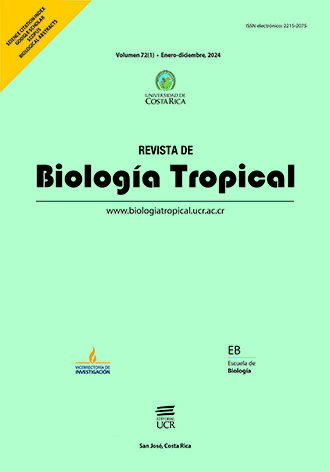Abstract
In recent decades, changes in use and increased wildfires have led to the disappearance of 60% of the surface area of Colombia's Andean forests and their increasing fragmentation. Among these forests are Quercus humboldtii oak forests, the only South American Fagaceae species of high socioeconomic and biodiversity interest. The reproductive response of this species will condition its regeneration capacity and the persistence of the oak forests. However, our knowledge of the effect of fire on the production and germination of acorns in Q. humboldtii is incipient. Objective: To evaluate the production and germination of Q. humboldtii acorns in oak forests affected by recurrent wildfires. Methods: We monitored acorn production and germination in Q. humboldtii trees from fire and non-fire-affected forests (central Colombia Andes, Boyacá, Iguaque massif) for fourteen months. We also evaluated fire incidence, tree size, precipitation, temperature and other site characteristics. Results: Acorn production began 34 months after the fire. In burned oaks, the production of incompletely developed acorns (abortions) was almost nine times higher than that of mature acorns. In addition, Oaks with larger scar areas or many scars were more likely to produce aborts. Conversely, oaks of larger size, especially in the crown, tend to produce more acorns. The few mature acorns from burned trees had smaller sizes and lower germination rates than unburned trees and the literature. The unburned trees in this study did not produce mature acorns, but abortion production is ten times lower than in the burned trees. Therefore, it is feasible that Q. humboldtii presents masting, and the unburned trees are in a low production cycle. Conclusions: Fire, tree size, and masting control acorn production in Iguaque oak forests, , which could affect the recruitment of the species due to a possible limitation in the source.
##plugins.facebook.comentarios##

This work is licensed under a Creative Commons Attribution 4.0 International License.
Copyright (c) 2024 Revista de Biología Tropical


